|
R E V I E W Francisca Griffin and the Bus Shelter Boys / Bitter Defeat / The Biscuits Nivara Lounge - Kirikiriroa Hamilton Sat 24th April 2021 By Dean Ballinger A small but appreciative crowd for some quality NZ indie-rock. First up was long-serving Auckland 3-piece The Biscuits, whose two guitar and drums line-up was in fine form, powering through distortion-soaked garage and spiky punk numbers, the two guitarists barking mantra-like phrases over the top, the lead guitar and drums often evoking the Asheton brothers from The Stooges. While most of the Biscuits songs are pretty short and repetitive structure-wise, they performed some longer numbers where they played with dynamics and feel – more of these please! Second was Kirikiriroa’s own Bitter Defeat, who are on a roll at the moment, having recently released their debut EP to good reviews and warming up to play support slots for The Chills in May. The band gave typically tight and energetic performances of their now established indie-rock repertoire, concluding with their signature tune ‘Long Lash’, although the vocals often got drowned out by the guitars. They also debuted a new number, presumably called ‘Falling Down’ based on the chorus, which sounded like it had been part of their set for a while. Hopefully more new songs are forthcoming. Francisca Griffin and the Bus Shelter Boys (drums, bass, violin, saxophone) had meant to tour nationally last year to promote the 2019 album 'The Spaces Between', but this was deferred due to Covid lockdowns. The set began with one of her more well-known songs, the melancholy Ghost Boy, on acoustic guitar accompanied by violin, which sounded great – I would have liked to hear a couple more songs in this format. The songs on 'The Spaces Between' album are largely in the classic Dunedin folk-jangle style (yes, you can hear echoes of Look Blue Go Purple songwriting), so it was surprising to hear them played live as raucous indie-rock numbers, with driving punk bass and drums that often relied on the floor tom and surf beats instead of more typical indie drumming. The songs were further endowed with interesting textures and rock gusto courtesy of violin and saxophone on different numbers, the sax mingling very effectively with the guitar – why isn’t this combination used more often? Unfortunately Griffin’s poignant lyrics and expressive vocals on record didn’t really translate to the stage, coming across as flat and murky – a common issue that may be related to the acoustics of Nivara Lounge. The relatively small crowd may have been due to local punters checking out The Veils in Raglan (or, god forbid, Six60 at Eden Park). An esteemed musical colleague seated next to me was most absorbed in Griffin and co’s performance, which is a fitting image summing up the gig overall.
1 Comment
I N T E R V I E W Theia & Vayne By Hp Interviewing someone about their art is interviewing them about their life. That can lead down some wild roads or it can end up in cul-de-sac’s talking about technique. I’ve blown plenty of interviews where I get to talk to someone inspirational and all we do is talk about form or key changes or the “scene”. Speaking with Theia and Vayne following the release of their single Creep, could have gone down that way had these two women not been the incredibly strong and brave people they are. Theia (Waikato/Tainui) grew up in Christchurch while Vayne (Waikato/Tainui) was born and raised in Kirikiriroa. Despite common iwi, the pair did not begin working together until a chance meeting at a te reo Māori APRA Songwriting programme in the Hawkes Bay. While artists in these programmes are placed together to collaborate musically, what happened for Theia and Vayne were conversations about life. Those conversations delved into sexual predators and how their victims were treated in the music industry and in society. From a place of shared pain and parallel but never straight lines of healing, Theia and Vayne found in each other ways of expressing their story that is both unique to them and universal. Vayne explained that once it came to the work, the writing and recording sessions were easy. The artists may not be a likely pairing on paper; Theia an ex-major label experimental pop artist with a wealth of experience and Vayne a new and grungy hip hop artist, but the collaboration was seamless. Fortuitous timing helped as well. Vayne has only been taking music seriously the last few years and Theia is newly independent, but also the pair had come to a place within themselves where they could discuss and in the song Creep, address, the abuse. Theia explained it was great to be able to come at the subject matter from a place of strength and a few years ago, it wouldn’t have been possible for her. Strength comes from many places, but it was the power of language and in particular the differences between English and te reo Māori that allowed a blossoming within these wāhine. Theia explained that some of the most derisive swear words in English come from slandering the female anatomy which screams of misogyny and using a woman’s body as a means to insult another. Its words like this she had no intention on wasting on the creeps she points to in the song, yet te reo Māori has kupu that holds the power, the anger, the frustration that survivors have towards abusers and that is 'pokokōhua', meaning 'I will boil your head'. The head in te ao Māori is tapu and to boil it is the ultimate insult. Theia sought guidance about using the kupu in the song and was ultimately empowered to use it to describe these creeps. Vayne found her strength in music and from a young age, its healing properties have allowed her to not only survive, but flourish. She saw whānau not speak out for her, she saw a society continuing to ostracize and oppress her people and yet here she is telling abusers and those who stay silent to protect abusers, “go boil your head.” Theia opens the track by using her native language, one so beautiful it belies the aggression behind her words. The translation is, “My muzzle has been loosened and I will never sit in silence again”. That is what these women want, or at least hope for – that rangatahi Māori, that wāhine Māori are not silenced. Theia strikingly puts it like this; “The modus operandi of abuse is to suppress you and to make you feel helpless and ashamed so you feel like you can’t go and get help and enables cycles of abuse and trauma to continue.” And this is speaking out. This is not remaining silent and it is adding to the collective voice that is calling for change in our communities where sexual violence is called it for what it is and stopped. Theia and Vayne are touring the North Island throughout May including a date at Nivara Lounge Kirikiriroa on Friday May 7. Tickets are $25 and available at undertheradar.co.nz For support on these and other matters raised in the interview, please utilize services such as Women’s Refuge 0800 REFUGE, Lifeline 0800 54 33 54 and http://www.rapecrisisnz.org.nz/
R E V I E W
Wurld Series – What’s Growing LP (Melted Icecream/Osborne Again/Meritorio) By Arpie It’s a gloriously autumnal Saturday morning in Kirikiriroa, the sun is shining, it’s warm, and absolutely pissing down. Ootautahi Christchurch’s Wurld Series latest offering, ‘What’s Growing’ has been slapped on the turntable, its forest green vinyl glistening in the half-light through the window. The needle hits, and opening track ‘Harvester’ floats out of the speakers and transports me back in time not to mention half way across the globe, straight into the first ten rows of the crowd for Pavement’s 1994 Reading Festival set when, aged 21, their perfect sound changed me forever. It’s nothing specific that takes me there, but at the same time it’s everything. Take recent single and second track, ‘Nap Gate’, for example – main songwriter Luke Towart’s droll vocal delivery, his and/or Adam Hattaway’s Malkmus-esque guitar lines, the Steve West beats of Brian Feary, (who also produced the record), the Iboldian basslines of Emma Hattaway…the whole package just soars and crashes at the right times and is very close to perfection. However, while there are undoubtedly Stockton vibes throughout this LP - Wurld Series wear their influences proudly on their sleeve - there is no doubt that they are a band in their own right carving their own way with an array of songs that just sound really really, really good. Take, for example, ‘Supplication’, ‘World Beating System’ and ‘To The Recruiting Officer’, there is a gentler flow rather than a song of typical verse-chorus-verse nature, which conjure up memories of Dayton’s Guided By Voices, The Beatles and even Tall Dwarfs, with instruments such as mellotron, slide guitar and even a xaphoon! Tremendous stuff. The rain outside has stopped and now there is just sunshine, which fits perfectly with the first song on side two, unquestionable banger ‘Grey Men’. I decide it’s time for a coffee and in doing so it hits me that I’ve been banging on about what these songs sound like, (to me), rather than what they are singing about. Then I realise I haven’t got a clue, and while it might be nice to find out at some stage, I’m not too bothered. The lyrics are definitely interesting and some of them stick in your head easier than others. Take ‘They will hover above/Look down with benevolent love’ on ‘Grey Men’. That got stuck in my head sometime ago now, like a large shipping, um ship, in an Egyptian canal, but I couldn’t tell you what it’s about and that’s just fine. Sometimes it’s nice just to listen and wonder and sing along and imagine what on earth lines like ‘Fresh-ly saturated and watched by eyes that can’t be sated’, from the album’s penultimate song ‘Moat’, actually mean. Apart from being the second song on the album to feature the word ‘sated’ – it’s a great first line and while I think I might have an idea of what it’s about, I like not actually knowing. Side two draws to a close with ‘Eighteenth Giant Brother’ declaring ‘Heading into autumn now’ and fittingly the rain returns outside – proper rain this time, loud, crooked rain, freshly saturating the sour earth and I wonder what’s growing out there.
I N T E R V I E W
Francisca Griffin By Indira Neville Francisca Griffin, known as Kathy Bull until the mid 1990s, was bass player, guitarist and vocalist for 80s Flying Nun band Look Blue Go Purple. She was bass player, guitarist and vocalist in 80s - 90s band Cyclops, and in January 2019 she released a fantastic album as Francisca Griffin entitled 'The Spaces Between.' Her current band, the fantastic 'Francisca Griffin and The Bus Shelter Boys', are currently on a tour of Aotearoa NZ, including a show on April 24th Kirikiriroa Hamilton's Nivara Lounge, with Bitter Defeat and The Biscuits. HUP thought it would be a good idea to ask Indira Neville of The Biscuits if she was up for interviewing Francisca. Happily she was! Over to you, Indira... I am interviewing Francisca Griffin and trying desperately to ask her things that she’s never been asked before. It’s tricky given her long and legendary music career and the numerous interviews she’s done, but I give it a go. I inquire into what song she’d sing if she was on American Idol. She responds, “Ghost Boy, and then I’d just win”. That out of all the songs in the Universe, she chooses one of her own, reflects Francisca’s confidence and comfort with herself and with her music, “I’ve always done it” she says, ”It’s just part of who I am”. “What do you think Katy Perry would think of Ghost Boy?” I ask next. With the same self assurance she states, “Katy Perry would say ‘how much do you want? Let me record this song! I’d say ‘sure’ and then my awesome publisher Songbroker would make sure I got 100% of the royalties”. I dare to hope that maybe she hasn’t been asked about American Idol before and so stay on the topic. I wonder her if she likes the show? She likes the audition rounds, before “…they get polished. The rejected ones are the ones I like”. Francisca’s ‘pre-polishing preference’ comes from her solid punk background; the music she’s made, the DIY process of making it and the Dunedin music community she has long been part of. She talks emphatically about the unequivocal support Look Blue Go Purple got from the “blokes” and that there was absolutely no culture of sexism within the 80’s Dunedin scene. This meant that when the band went on tour and did experience, “The odd fella…” they didn’t take it, “We just shut them down”. Obviously then I ask her about the sexist and abusive male behaviour currently bubbling to the surface within Aotearoa NZ music. She believes it’s part of an ‘industry’ that just wasn’t around in her early career, that just like on American Idol, young women musicians and performers now get ‘polished’ because, “They all want something; managers, publicists, venue owners, and so there’s abuse of all kinds. They abuse your creativity, your body, your potential, your bank account…”. She says, “It’s a no brainer…”that if there’s one thing she could change about the Aotearoa NZ music scene it would be this, “I’d disappear all that bullshit and also this idea that for some reason a man is better than I am”. I assume this is in-part why she says shape-changer when I ask her what superpower she’d choose. She says she’d transform into all kinds of things including a man, so she could experience what it’s like to have privilege and power by default. But also she wonders what, “…those dangly bits…” would feel like. It’s something I’ve always wondered too. Probably hoping to impress her with my feminist insightfulness, I follow up this discussion with a rant about the name of her current band, ‘Francisca Griffin and the Bus Shelter Boys’. I wonder out loud if putting her name up front and the fact that it’s in bigger letters on the current tour poster is a statement about ‘female power’ but with a ‘nurturing aspect’ yada yada yada… She looks thoughtful and tells me that no, the name comes from a blogger who reviewed a performance and said, “She looks like she found her band in a bus shelter” and they all thought it was funny and decided to adopt it. Francisca insists they’re not a backing band. She describes the band’s process; she writes something on guitar and takes it to them, and then because they’re “experts in jamming” it morphs and continues to be written as they play it. And so the final version is something they’ve made together. She does laugh however, and say “I am the ‘band boss’. That’s just the way it is”. The songs Francisca takes to the Bus Shelter Boys are written in her own way. When she comes up with a tune she plays it over and over and over until it’s “…glued into being”. For the lyrics she consults her pile of notebooks, playing with the words she’s constantly collecting from books and matchboxes and her head and heart and anywhere. She loves playing live, describes it as “buzzy” but points out she’s a musician not a performer, because, “I want to do it. It’s not really for the audience. I’ll happily play for lots of people or six people and either can be amazing”. I don’t doubt this is true but when I’ve been an audience member, I’ve never noticed that Francisca was not playing for me. Instead it feels like she is sharing her music and that I’m really lucky she’s doing so. I do agree though that she is amazing.
Grab yourself a ticket to see Francisca Griffin and The Bus Shelter Boys on tour around the country, (see poster below), by clicking through to Under The Radar HERE.
I N T E R V I E W VGB: The Giver and the Gift with Trevor Faville VGB recently released ‘The Giver and The Gift’, and it’s a fitting return for ex-Lucid 3 front-woman Victoria Girling-Butcher, in collaboration with Tom Healy (Tiny Ruins/Terrible Sons/Finn Andrews/Julia Jacklin and more). Trevor talked to Victoria about the release, songwriting, what she has been doing between Lucid 3 and now, and more! HUP: You describe your new song ‘The Giver and The Gift’ as a song about 'polarity'. Could you expand on that? VGB: Well, I co-wrote it with Tom Healy, and what we did was we had a Google document. I’d had some of the lyrics - I think the chorus lyrics were written for another song. Then we expanded some themes, and while we both wrote into this document, we could see what the other person was writing. That “word association” process started happening, and we ended up writing these couplets that were kind of contradictions. The song was being made up of couplets of opposites - 'polarity' - swinging from one to the other. It was a new way of songwriting for me. I haven't in the past done a lot of co-writing - certainly not in that way. I don't usually trust people lyrically. I feel pretty fond of words and am quite critical of lyricists. Tom was a good one to write with because he's got a good eye for that sort of thing. So that's how ‘Polarity’ came into the press release - because of the opposites in there. HUP: One line jumps out is “there are two songs to be sung/ each undoes the other one”, which seems to be a summary of what you have just said. VGB: Exactly! It's almost self explanatory, in a way. That is my favourite line from the song. HUP: Can we talk a bit about the people involved with recording this song? VGB: We had Tom and Adam Tobeck on drums; he was extraordinary - really, really good. Its the first time I have worked with session musicians, too. Most of the track is Tom and I. Tom spent a lot of time with it. HUP: You can always tell when there is a real drummer! VGB: Live drums are so important in music I feel. I love playing with them. I love the infectious nature of the feel that comes from them. HUP: Working with Tom, and with the ‘back and forth’ process of the words, was that easy for you to do?’ VGB: Yeah, I had done a few songwriting sessions a couple of year ago with various different people. Some people I knew really well and had worked with before, and others were like ‘dipping my toe in’; Tom was one of those. What I like is that his background is classical music, and I think there's a point of difference in his musicality - his general music personality. There's just something very appealing about that. So I enjoyed working with him on those songwriting sessions. HUP: Reviews are all about ‘the adjectives’ these days. When listening, the adjectives I was getting were ‘Crafted, Detailed, Melodic, Considered and Intelligent...so was it an easy write? VGB: Good words! There were moments of difficulty because I think I was out of my comfort zone... which is a good place to be, but... it's a really personal thing, songwriting, which is why I've always done it alone. In my former band, Lucid 3, I would write everything on my own. Literally where no one would hear; it was like someone finding out a dirty secret or something. So that was a bit hard for me to relax into the space to open enough for creativity to happen. But, I think that served a good purpose in a way, too, because I was really happy with the outcome. HUP: Almost a sense of letting go... to a certain extent. VGB: Yes! Musically I have always loved collaborating, and the back-and-forth working with people on musical ideas, but when it comes to the core songwriting part, that isn't always as easy. HUP: Veering off into ‘history’, if that's okay? So ,starting from the end of Lucid 3 to now, could you give us a couple of key 'plot points’ along that way? VGB: On the timeline? HUP: Yeah-from ‘there to here’- plot twists- if you will! VGB: So, I did an album, ‘Victoria Girling-Butcher', which I love. I love that album. I ended up releasing that one and moving to France, where I lived for a little while... and I taught at a music school, and collaborated on some music with a New Yorker, who came to Paris and started this Rock School for the rich and famous types. With him I did a few early VGB things. I got pregnant and came home to New Zealand. [It] took a few years to get through the early days of parenting and then back to music when I started working in Dave Dobbyn's band regularly again. I had done it on-and-off for 10 years. Getting back on stage and getting my music chops going, that's helped lead into me being able to consider being a composer again. [continued below] HUP: Hearing you talk about parenthood, and then getting back into it - there are people who will look at that as a barrier, or a time to give up. That doesn't make any sense to me so it's interesting to hear someone who has said “it's time get back into it now”. VGB: Well I just don't feel complete without it. I was very lucky to be asked to go and join Dave’s band after my daughter was born. That just reminded me that I could. It's a thoroughly enjoyable thing. People love him and love his songs. So it was a positive experience. HUP: And that's a particularly tight band isn't it. I think of Ross Burge... that's a good drummer. it would be pleasure playing with that for sure. VGB: Such a joy! There is something about it. So often I hear people reflect back to me how joyous his playing is. Just something really unique and special. HUP: Here's something of a deeper question, and I am curious for your insight on this as you are an experienced musician. What do you think the relationship is between experience and wisdom when it comes to music? VGB: My perspective would be: there is a liberation that I feel about the music that I am making now that I didn't when I was in my twenties. I don't really care what people think. I’m not out to please people. When you are younger there's a real sense of needing to get approval. And a lot of that has just disappeared from my motivation. Sometimes that's to my disadvantage because I'm not pushing as hard - not as ambitious, in a way... that vanity doesn't appeal to me. Maybe I didn't realise it at the time, in my twenties, but it probably did. Ego is different. And that's good! It's also liberating because what comes with that sense of needing approval, there's often a huge amount of disappointment because not everyone is gonna love your music. And I'm okay with that now. I just want to make it and enjoy it! HUP: I work in music education, and I believe that's a really valuable perspective for younger musicians to be aware of. Maybe by not worrying about approval, the quality of your music goes up. VGB: I agree. I observed that with Reb Fountain. I think what's made a huge difference. She is very unapologetically ‘her’. I interviewed her for Audioculture and she was touching on this at the time - about a year ago, and I was thinking... ’Yes!’ I am very pleased for her that it has gone so well. HUP: How are people adapting to ‘VGB?’ VGB: Had a few messages last week... and they tended to find it... those who already knew me as Victoria Girling Butcher were really struggling to go with ‘VGB’. Those who don't know who I am are finding it much easier to swallow. I hope to reinforce the VGB thing! HUP: Is there a ‘new music industry’ now - or is it very much the same? VGB: It's different. Many of the same faces are still around, but I released my last album a good ten years ago. It wasn't streamed. It didn't get uploaded to Spotify. I sold hard copies! The last ten years has sort of been like fifty in terms of the progression of how the music industry works. It's a different process. I am learning, for example, the need to be extremely active on social media. I took a vow that I would do my best, but that was last week and I am already flailing! I don't identify with it as much as you need to. You need to have a good presence online with social media. So I am coming to terms with that. HUP: Do you have a favourite piece of gear? VGB: I would have to say it's my ‘76 slimline Tele’. Such a faithful and beautiful instrument. I love my Rhodes piano - my Fender Rhodes suitcase - and I quite like my Steinway upright... all of it very analogue! Those are my three ‘go to’s’ for songwriting. HUP: final question then... what's next? VGB: More songs. I am producing, in my crappy home studio, song after song after song. I will do some work with Tom when he is not so busy, but I love collaborating so I am in the process of working out who else I want to work with on the next songs. Of which there are so many! Hopefully a new release really soon. HUP: Any live work planned? VGB: Not for VGB. I did do the last 6 months on the road with Th’Dudes and with Dave. There's only so much you can sustain and I am loving being at home with my family. There's two sides to the ‘touring musician’ coin!
I N T E R V I E W
Martin Phillips of The Chills By Dean Ballinger HUP was fortunate enough to put some questions to a true legend of New Zealand music, Martin Phillips of The Chills, ahead of the release of the band's new album and forthcoming tour of Aotearoa. Dean Ballinger posed the questions and Martin responded with some revealing answers, which, amongst other things, remind us of the incredible and often dramatic history of the band as well as shining a light on what lies behind The Chills existence and modus operandi in 2021. A fascinating read awaits... HUP: The 2010s witnessed a Chills renaissance of sorts – regular album releases and the release in 2019 of the well-regarded documentary The Chills: The Triumph & Tragedy of Martin Phillipps. To what extent was this renewed activity planned or fortuitous? MP: Very fortuitous! Although The Chills had never stopped writing, recording and touring it was not until we played at a combined New Year’s Eve / 50th Birthday party in Queenstown in 2011 that someone entered the picture who, of course, turned out to be a peaceful hippie art dealer U.S. millionaire who was determined to see our fortunes improve. A long story followed but this lead to our connection with Fire Records in London who have handled us since. HUP: What are your hopes and ambitions for the new album Scatterbrain? MP: Hopes are so uncertain in the Covid era but I guess I have two hopes: the first is the obvious one that this new album reaches a much bigger appreciative audience in these times - when achieving that has become so much more problematic for “legacy” artists. We know we have produced an album of exceptional quality but that is no guarantee. The second hope is that, after three recent quality albums in a row, it finally puts to bed the perception that The Chills were a band who had some hits and near hits in the eighties and then more or less faded away. I think we have proven that the story is still unfolding and that the new music, although different to the early years, is by no means lacking that individual quality. HUP: Silver Bullets (2015) appeared to have a loose theme in terms of several songs dealing with environmental and political issues: similarly, Snowbound (2018) came across as an album dealing with middle-aged reflections on the self, the world, and mortality. Is there a similar thematic focus to the songs on Scatterbrain? MP: There is an overall theme on ‘Scatterbrain’ of confronting aspects of mortality. The album did not start out that way - with me (once again) perhaps dwelling too strongly on concepts of environment and consumerism etc, but it was pointed out to me that the material I wrote which was the most personal was also that which connected with persons of my own era who were maybe going through similar issues. The loss of parents and loved ones, acceptance of probable solitude until death etc. HUP: The lyrics on the recent Chills albums come across as more direct and mature engagements with society and the self, rather than the more abstract and romantic lyrics of early Chills material. Do you think your approach to musical factors such as composition and style has also changed or developed over the recent Chills albums? MP: When I first discovered that I even had a talent for music I began experimenting with a weird mixture of my formative influences - Dr Seuss, Ray Bradbury, ‘60s pop and TV etc - but also trying to find something with a bit of darkness and depth within that. At the moment I am trying to tap directly into my own experiences but then I tend to strip away the references which might not relate as much to other peoples’ experiences because I believe that the material will then connect more directly with them and be of more help to those trying to put words and background to their own situations.
HUP: In terms of songwriting, do you tend to write a lot of material specifically for each new album, or select songs from a pool of material you may have had in the works for some time which you decide ‘suits’ the feel you are going for? MP: This is, perhaps, the first album where I have not drawn upon at least a few riffs going back many years - in some cases from as far back as the early eighties. I found I had enough new material coming through that I did not even have to search through the archives this time around or also have the need to finally complete songs which have been hovering around for decades. Having said that there are hundreds of riffs and songs I have begun since 1980 and I believe we are getting close to having those in an accessible digitised format where I can start to attempt completing as many as I can of the better ones. HUP: The current incarnation of The Chills has been consistently stable for many years (although long-term bassist James Dickson has been replaced with Callum Hampton for Scatterbrain). How did you meet and enlist the current line-up? MP: Yes - I’ve only lost two members in the last twenty-one years - and that’s longer than the early Chills years with the notorious ongoing line-up changes. I have met all of the current line-up through previous musical encounters or from recommendations. I don’t think it’s wise for me to advertise a vacancy too much anymore. HUP: What prompted The Chills to sign with UK indie label Fire Records for the recent albums? How do you find the label by comparison with past record companies the Chills have been involved with (Flying Nun & Slash/Warners)? MP: A remarkable chain of events lead us to linking with Fire Records and we have found them to be an excellent and dedicated label who believe in The Chills on an international level. With great respect to Flying Nun we were not always a practical option for a New Zealand-based label and there have historically been times when I totally understood that investing in The Chills as an ongoing international act had backfired and taken funding away from more deserving contemporary acts. Now we are working happily with both labels as Flying Nun are still working our back-catalogue. HUP: The Chills: The Triumph & Tragedy of Martin Phillipps was a rather intimate look at yourself and the band. Now that the documentary has been out for a couple of years, how do you feel about it? How have you found the audience and critical responses to the film? MP: Initially I wasn’t even sure that I would live to see the release of the film. Now I realise that I revealed more about myself than I might have chosen to do. We were determined to be honest because of the serious nature of the health message within the movie. I had not seen quite how eccentric I was until I watched the film with a full cinema of other people at various premieres around the world. But I stand by the film for its sheer honesty and the extraordinary quality of its production. In preparation for the documentary I had watched a lot of “rockumentaries” and I still believe that this one is up there with some of the best. HUP: Digital media and the internet are often portrayed as deleterious for musicians, e.g. fostering audience expectations that music should be ‘free’; miserly royalty rates from music platforms such as Spotify. However, they can also have more positive dimensions, for instance bands being able to perform for audiences ‘live’ online in relation to Covid lockdowns. As a professional musician, what are your opinions on the pros and cons of our current digital era? MP: Largely it is disastrous for older artists as, like any dedicated career, we have invested years and many thousands of dollars only to find that the whole product has been devalued [read - profits diverted!] and you are being told to just keep touring and selling merchandise. That doesn’t work on a practical level within New Zealand. The bright side is that the desperation is bringing out the best in people’s creativity and the imagining of new and different business models. HUP: The Chills have been around for over 40 years now. What might be one career highlight and one career lowlight that come to mind? MP: Because of Prime Minister David Lange’s Labour government’s ongoing stance in the eighties against American warships visiting New Zealand, The Chills were, apparently, seen favourably by Moscow and we were only the fourth Western band to be allowed entrance to perform in East Berlin - some years prior to the Wall coming down. We watched the KGB, shivering in their little Trabant, follow us around the cafes and bookshops on our morning off. But then, because of our visit to the Eastern Block, when we next toured the USA, we were informed that we were very likely now on a CIA watch-list. Our statement in the ‘Submarine Bells’ album liner notes about America’s Neither Confirm Nor Deny policy on nuclear weapons on warships had not helped. Also around that time we toured Italy (in the late eighties) and two gigs into the tour a Mafia underling took over tour management to ensure that the payments were made promptly and correctly. He said “My name is Angelo, I am from Sicily - but it is no problem!”. We have many stories… Big thanks to Martin for taking the time to talk to us! The new album, 'Scatterbrain', is out May 14 on Fire Records, and The Chills tour Aotearoa in April and May, catch them at a town near you: April 16 Oamaru Club, Oamaru with ASTA RANGU April 17 Larnach Castle, Dunedin Arts Festival SOLD OUT April 18 Festival of Colour, Wanaka SOLD OUT April 30 Cassels Blue Smoke, Christchurch with MOUSEY May 1 Wakatu Hotel, Nelson with MOUSEY (solo) May 6 St. Peter's Hall, Paekākāriki with LUKE BUDA May 7 Meow, Wellington with LUKE BUDA May 8 The Cabana, Napier with DEVIL'S ELBOW May 9 The Dome, Gisborne with BITTER DEFEAT May 13 Totara St, Mount Maunganui with BITTER DEFEAT May 14 THE CHILLS & THE BATS Powerstation, Auckland with PURPLE PILGRIMS May 15 Town Hall, Raglan with BITTER DEFEAT |
Archives
July 2022
Categories |
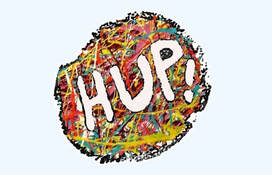
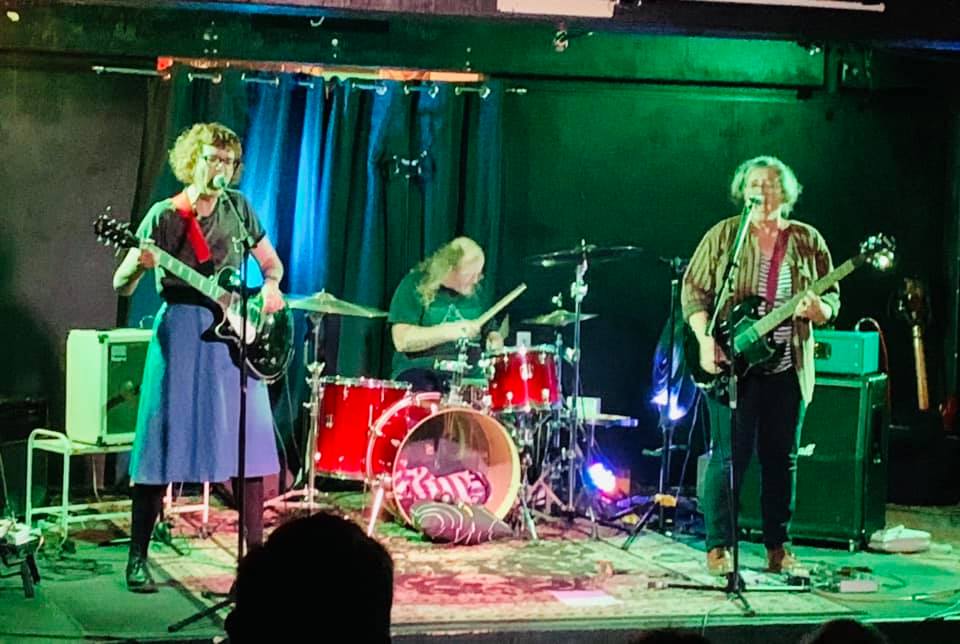
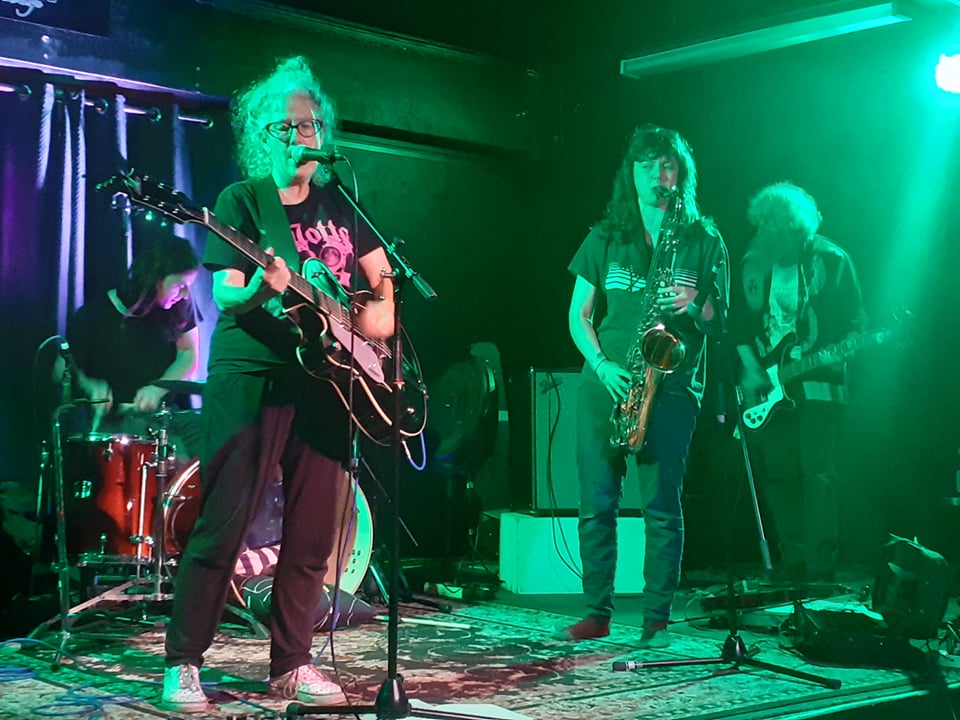
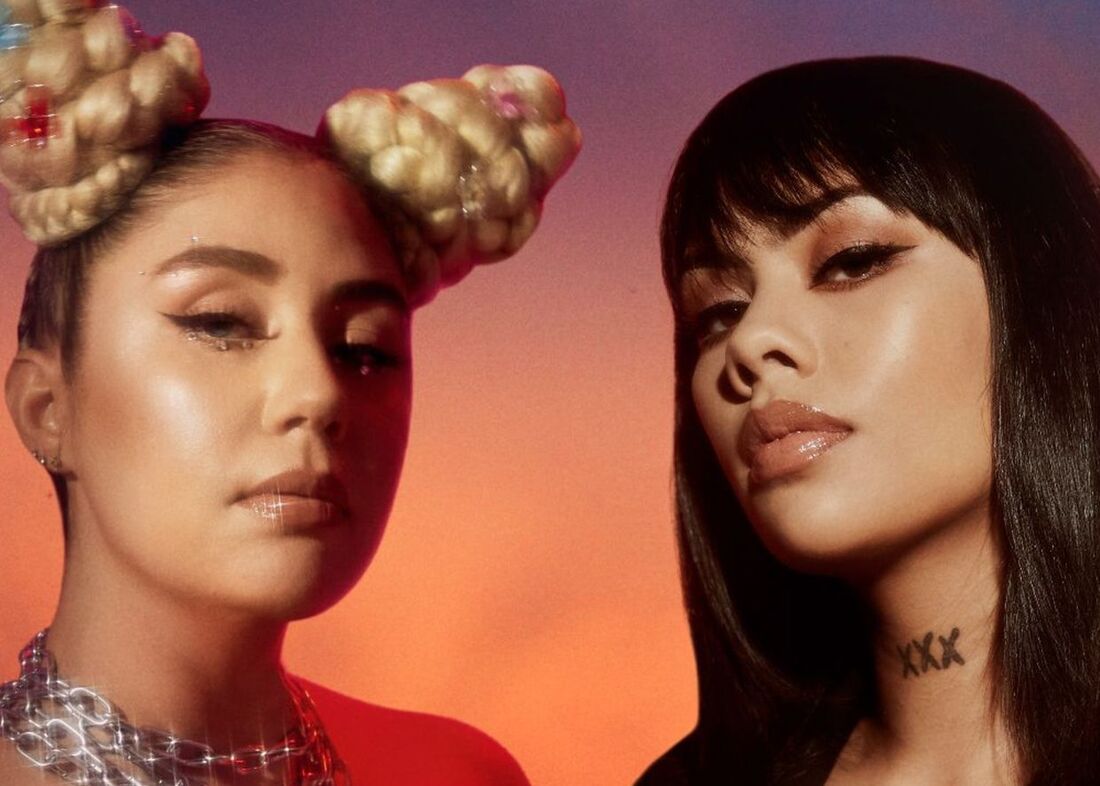
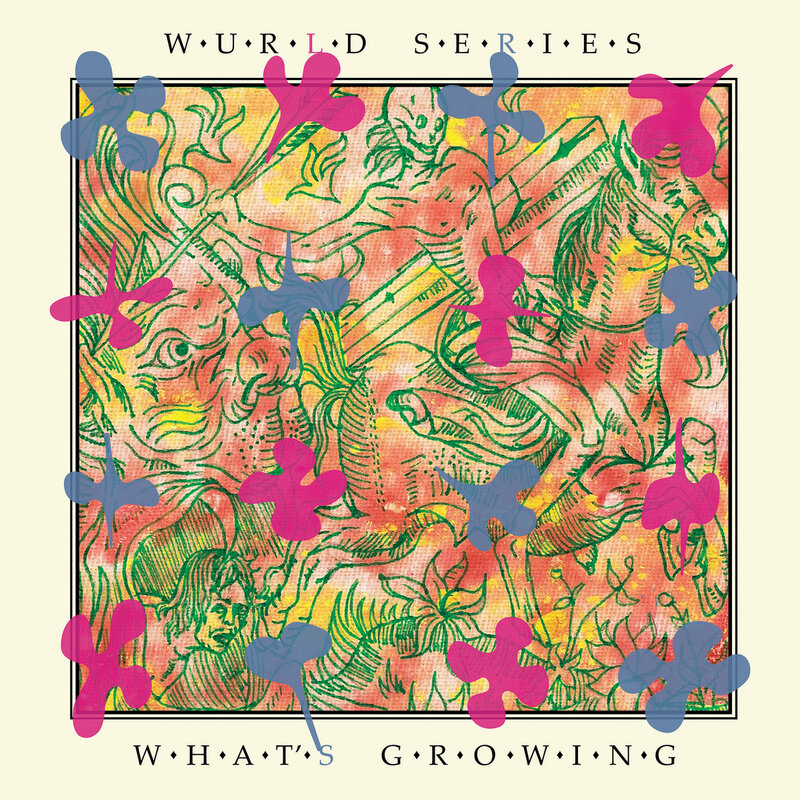
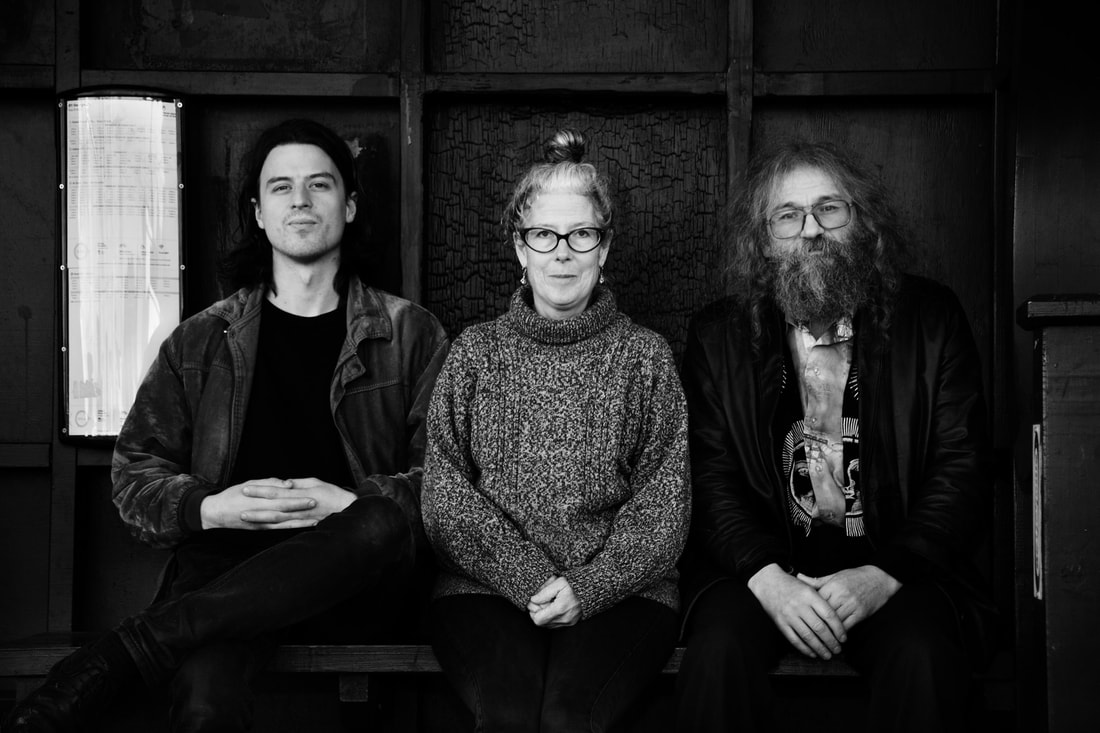
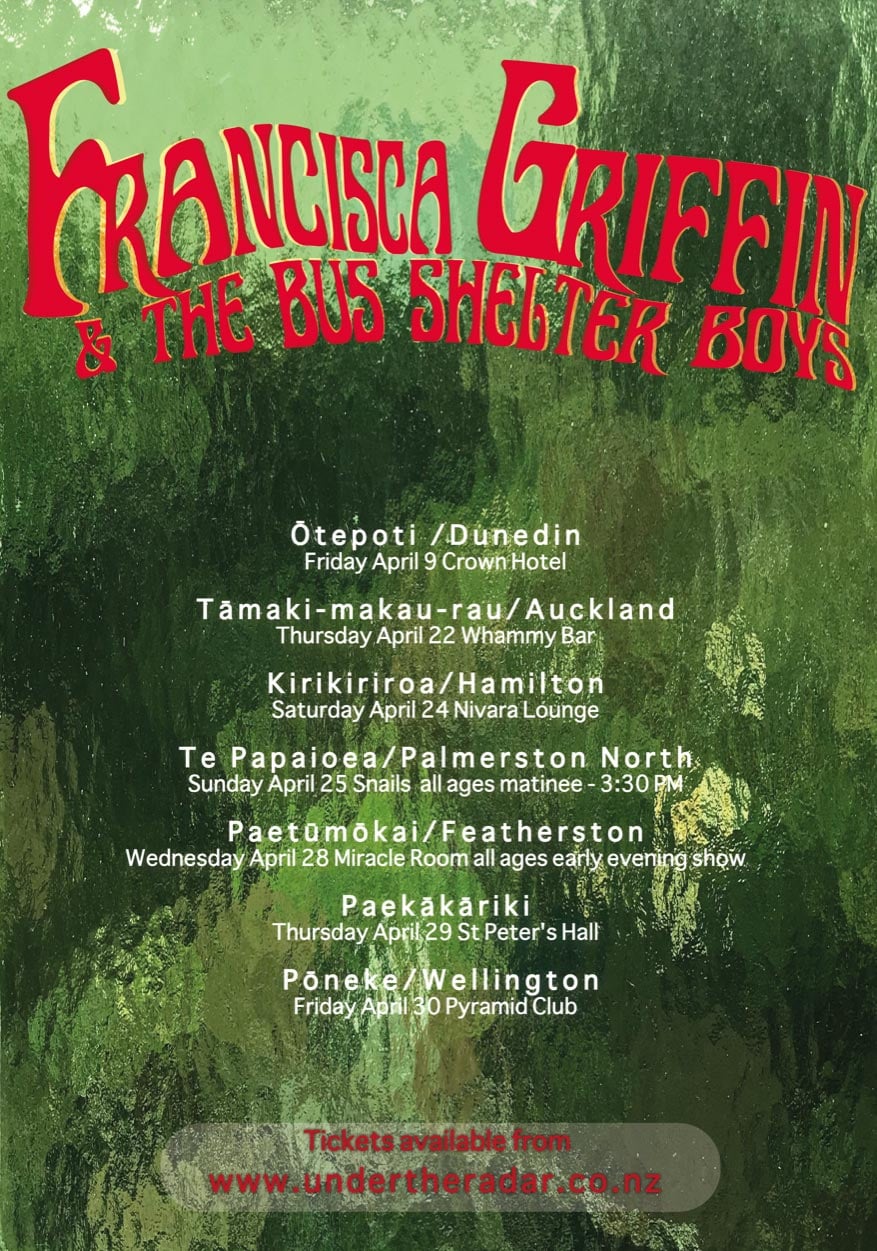
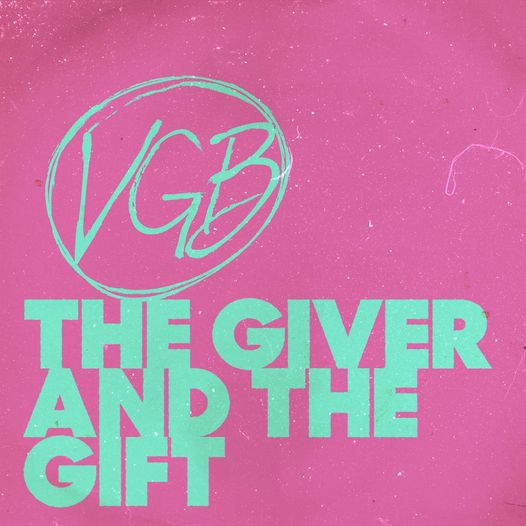
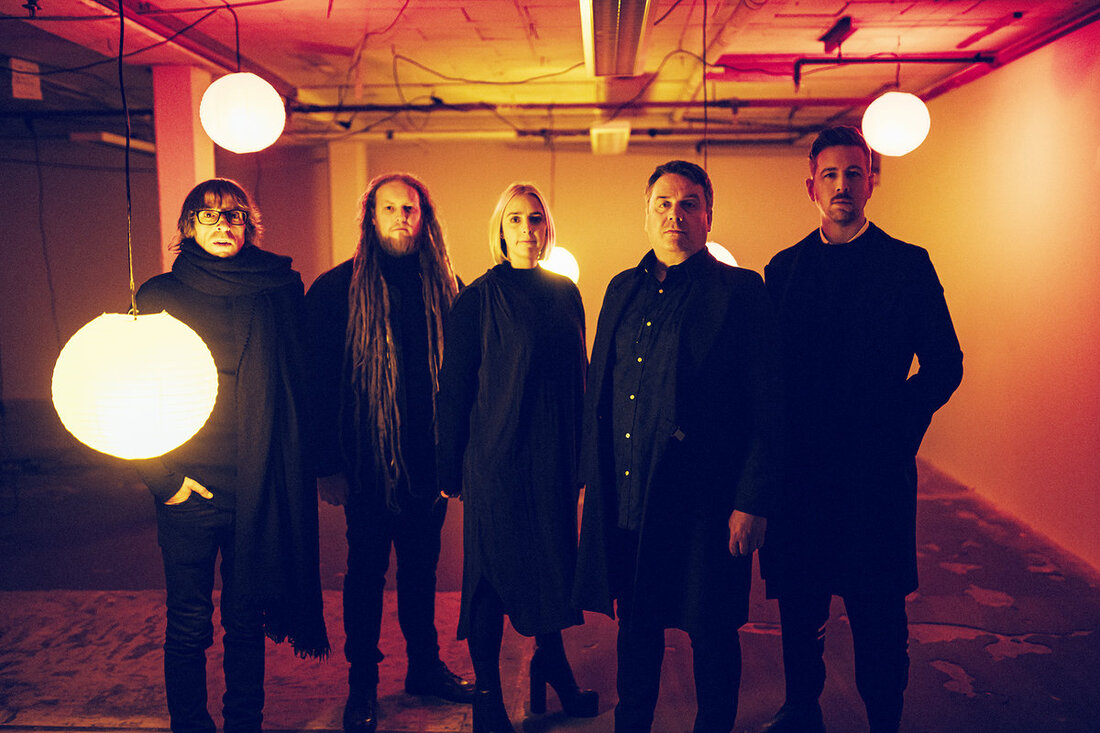
 RSS Feed
RSS Feed
